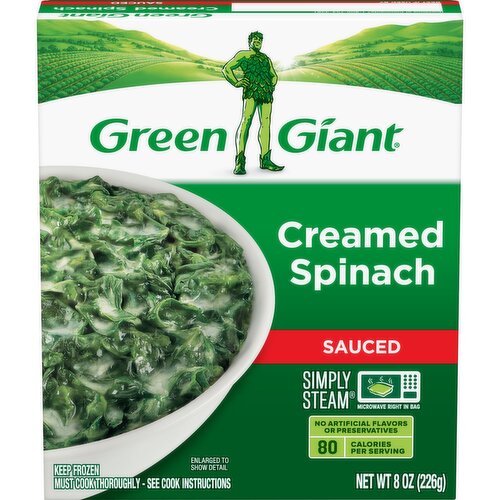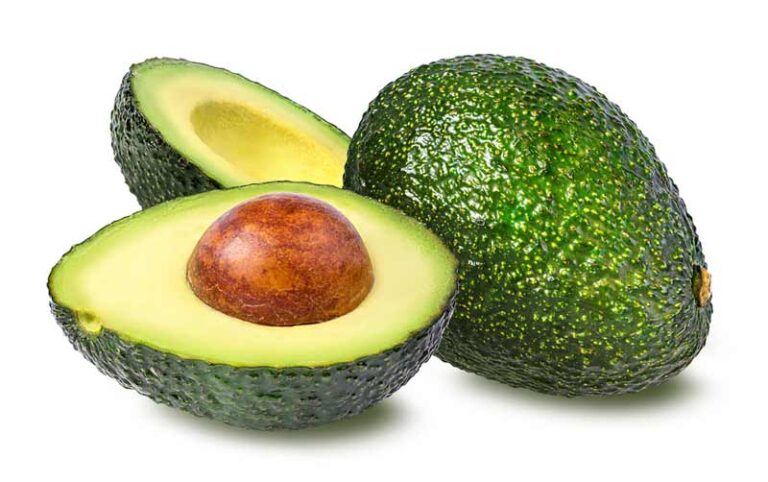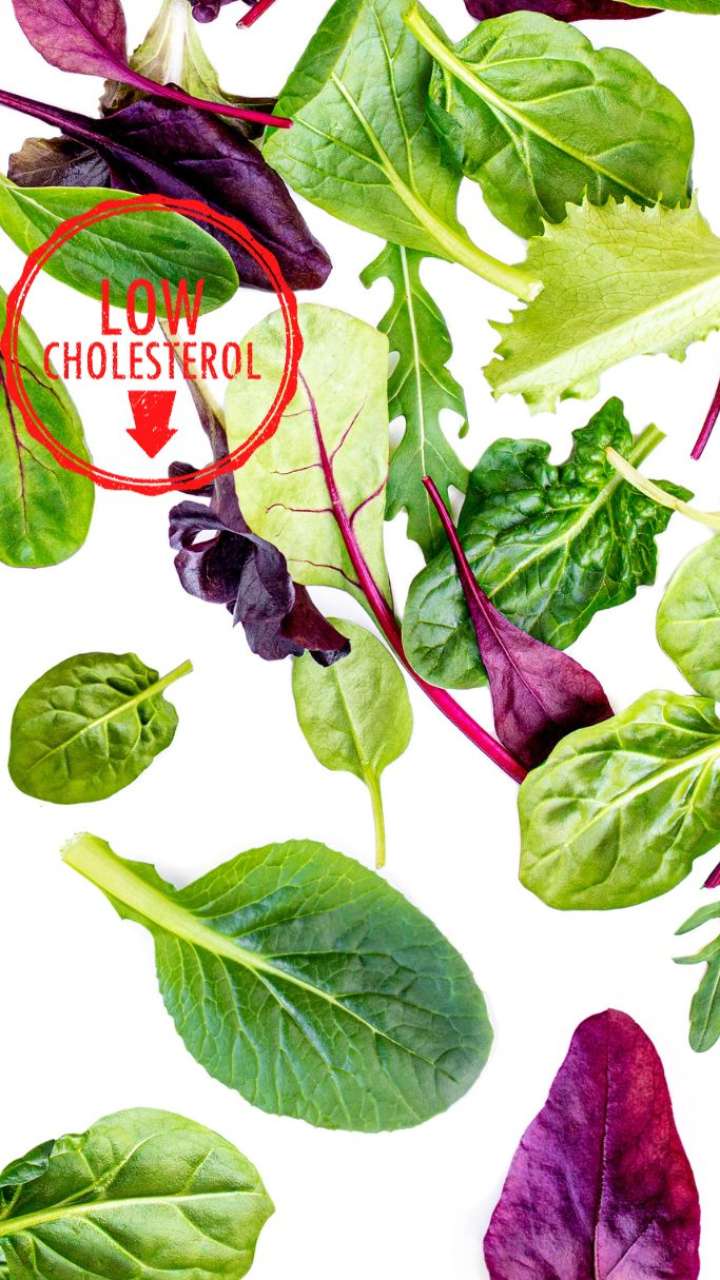The Aubergine Alchemy: Cultivating Sustainable Weight Management with Low-Calorie, High-Fiber Eggplant
The pursuit of weight management, for many, often feels like an Sisyphean task—a perpetual uphill battle against cravings, metabolic plateaus, and the siren call of fleeting diet trends. In a world saturated with quick fixes and restrictive regimens, the true, lasting solution invariably lies not in deprivation, but in intelligent, sustainable nourishment. It is within this paradigm shift, from restriction to abundance, from fleeting fads to foundational foods, that we discover the unassuming yet extraordinary power of the humble eggplant, or aubergine.
This article delves into the profound potential of eggplant as a cornerstone for sustainable weight management, exploring its unique nutritional profile—low in calories, remarkably high in fiber—and demonstrating how its strategic incorporation into our diets can foster lasting health, satiety, and a positive relationship with food. For the knowledgeable audience, we will journey beyond the surface, unpacking the scientific mechanisms, culinary versatility, and psychological benefits that position eggplant not merely as a vegetable, but as a genuine ally in the quest for enduring well-being.
The Unraveling of Modern Weight Management: Beyond the Calorie Count
Before we celebrate our purple protagonist, it’s crucial to understand the landscape of weight management today. The prevailing narrative, often simplistic, centers solely on "calories in, calories out." While undeniably a fundamental principle of thermodynamics, this reductionist view frequently overlooks the intricate biological, hormonal, and psychological factors that govern our metabolism, hunger, and satiety.
Fad diets, characterized by extreme calorie restriction, elimination of entire food groups, or reliance on specific macronutrient ratios, often yield rapid initial weight loss. However, this success is frequently ephemeral. The body, perceiving famine, adapts by slowing metabolism, increasing hunger hormones, and intensifying cravings. The psychological toll of deprivation—the constant battle against desire, the social isolation of rigid eating rules—eventually leads to burnout, often culminating in weight regain, sometimes even exceeding the initial loss. This disheartening cycle, known as "yo-yo dieting," erodes self-efficacy and perpetuates a negative relationship with food.
Sustainable weight management, therefore, demands a more holistic and nuanced approach. It necessitates:
- Nutrient Density: Prioritizing foods that offer a high concentration of vitamins, minerals, antioxidants, and other beneficial compounds relative to their caloric content. These foods nourish the body at a cellular level, optimizing physiological function.
- Satiety and Fullness: Choosing foods that promote a feeling of satisfaction and fullness, thereby naturally reducing overall calorie intake without conscious effort or struggle. This is where fiber and water content play a pivotal role.
- Blood Sugar Regulation: Consuming foods that stabilize blood glucose levels, preventing sharp spikes and crashes that trigger cravings, energy dips, and fat storage.
- Gut Health: Recognizing the profound connection between a healthy gut microbiome and overall metabolic health, including weight regulation, inflammation, and even mood.
- Culinary Enjoyment and Versatility: Adopting dietary patterns that are diverse, flavorful, and adaptable to various preferences and social situations, ensuring long-term adherence and pleasure.
- Mindful Eating: Fostering an awareness of hunger and fullness cues, savoring meals, and understanding the emotional drivers behind eating.
It is precisely at the intersection of these critical factors that eggplant emerges as a star player, offering a powerful, yet often underestimated, solution.
Eggplant: A Nutritional Profile Tailored for Sustainable Weight Management
At first glance, eggplant might seem unassuming. Its primary contribution to the human diet is not a sudden burst of exotic nutrients, but rather a remarkable synergy of low energy density, high fiber content, and a spectrum of beneficial phytonutrients.
The Caloric Economy: Volume Without Vices
A medium-sized eggplant (approximately 450 grams or 1 pound) contains roughly 110-120 calories. To put this into perspective, this entire vegetable provides fewer calories than a single medium apple or a small handful of nuts. Its caloric density is incredibly low, largely due to its high water content, which constitutes over 90% of its mass.
This low energy density is a game-changer for weight management. It means you can consume a substantial volume of food, filling your stomach and signaling satiety to your brain, without significantly impacting your daily caloric budget. This "volumetric eating" strategy is foundational to sustainable weight loss, as it allows individuals to feel full and satisfied, minimizing the psychological burden of perceived deprivation. Instead of battling hunger, one can enjoy a generous portion, allowing the body’s natural satiety mechanisms to work effectively.
The Fiber Factor: The Unsung Hero of Satiety and Gut Health
Fiber is perhaps the most critical component of eggplant for weight management. A medium eggplant typically provides 10-12 grams of dietary fiber, which is a significant contribution towards the recommended daily intake of 25-38 grams for adults. This fiber content is a powerful tool, working on multiple fronts:
-
Enhanced Satiety: Eggplant contains both soluble and insoluble fiber.
- Soluble fiber forms a gel-like substance in the digestive tract, slowing down gastric emptying. This prolonged feeling of fullness helps reduce the urge to snack between meals and prevents overeating at subsequent meals. It also binds to cholesterol particles in the gut, aiding in their excretion.
- Insoluble fiber adds bulk to stool, promoting regular bowel movements and preventing constipation. This contributes to overall digestive comfort and health, which is often compromised in individuals following restrictive diets. The sheer bulk of insoluble fiber in the stomach also contributes to mechanical distention, signaling fullness.
-
Blood Sugar Regulation: The fiber in eggplant significantly slows the absorption of sugars into the bloodstream. This prevents rapid spikes in blood glucose and subsequent insulin surges. Stable blood sugar levels are crucial for weight management because:
- They reduce cravings for sugary and refined carbohydrates.
- They help prevent the body from storing excess glucose as fat.
- They contribute to sustained energy levels, avoiding the "sugar crash" that often leads to seeking quick energy fixes.
-
Gut Microbiome Support: Dietary fiber acts as a prebiotic, feeding the beneficial bacteria in the gut. A healthy gut microbiome is increasingly recognized as a key player in metabolic health, influencing everything from nutrient absorption to inflammation and even appetite regulation. A diverse and robust gut flora can optimize energy extraction from food, reduce systemic inflammation (often linked to obesity), and even influence the production of satiety hormones. By nourishing these beneficial bacteria, eggplant indirectly supports a healthier metabolism and improved weight management outcomes.
Micronutrients and Phytonutrients: Beyond Basic Sustenance
While low in calories and high in fiber, eggplant is far from nutritionally inert. It offers a spectrum of essential vitamins, minerals, and potent antioxidants that support overall health and, by extension, sustainable weight management:
- Vitamins: Eggplant is a good source of Vitamin B6 (pyridoxine), which is crucial for metabolism, nerve function, and red blood cell formation. It also provides Vitamin C, an antioxidant vital for immune function, and Vitamin K, important for blood clotting and bone health. Folate, another B vitamin, is present and plays a role in cell division and DNA synthesis.
- Minerals: It contains a notable amount of potassium, an electrolyte vital for blood pressure regulation, fluid balance, and muscle function. Manganese, magnesium, and copper are also present, playing roles in various enzymatic reactions, energy production, and bone health.
-
Antioxidants and Phytonutrients: This is where eggplant truly shines in its protective capacity. Its vibrant purple skin is rich in anthocyanins, particularly nasunin. Nasunin is a potent antioxidant that gives eggplant its distinctive color and is classified as a delphinidin-based anthocyanin. Research suggests nasunin may:
- Protect cell membranes from oxidative damage.
- Chelate iron, preventing free radical formation.
- Exhibit anti-angiogenic properties, potentially inhibiting the growth of new blood vessels that feed tumors.
- Improve cognitive function by protecting brain cells.
Beyond nasunin, eggplant also contains chlorogenic acid, another powerful antioxidant and anti-inflammatory compound. Chlorogenic acid has been studied for its potential to:
- Modulate glucose metabolism, potentially improving insulin sensitivity.
- Reduce cholesterol levels.
- Inhibit lipid peroxidation.
While these phytonutrients don’t directly cause weight loss, their systemic effects—reducing inflammation, improving metabolic markers, and protecting cellular health—create a more optimal internal environment for sustainable weight management. Chronic inflammation, for instance, is often linked to insulin resistance and obesity, so compounds that combat it contribute to a healthier metabolic state.
Eggplant in Action: Culinary Strategies for Weight Management
The theoretical benefits of eggplant translate into practical success only through consistent culinary application. One of eggplant’s greatest assets is its remarkable versatility, allowing it to be integrated into a myriad of dishes, preventing palate fatigue and ensuring long-term adherence.
The challenge, often cited, is eggplant’s spongy texture, which can absorb a considerable amount of oil if not prepared correctly. However, with a few simple techniques, this can be easily mitigated, transforming it into a low-calorie, high-fiber canvas for flavor.
Preparation Techniques to Maximize Health Benefits:
- Salting and Draining: This classic technique draws out excess water, making the eggplant less spongy and reducing its capacity to absorb oil. Slice or cube the eggplant, sprinkle generously with salt, let it sit for 30-60 minutes, then rinse thoroughly and pat dry. This also helps to reduce any potential bitterness.
- Roasting and Grilling: These methods caramelize the eggplant’s natural sugars, enhancing its flavor while requiring minimal oil. Tossing eggplant pieces with a light coating of olive oil (or even cooking spray) and herbs before roasting at high heat (200-220°C/400-425°F) yields tender, flavorful results. Grilling slices provides a smoky depth and attractive char marks.
- Baking and Steaming: For the absolute lowest-calorie preparations, baking eggplant slices (perhaps brushed with a touch of broth or lemon juice) or steaming it can be effective, though flavor development might be less intense.
- Air Frying: An air fryer is an excellent tool for achieving a crispy texture with very little oil, making it ideal for eggplant "fries" or "chips."
- Stewing and Braising: Eggplant excels in slow-cooked dishes, where it softens and absorbs the flavors of accompanying ingredients. This is perfect for curries, ratatouille, or hearty vegetable stews, adding significant bulk and fiber without excessive calories.
Integrating Eggplant into Everyday Meals:
- Breakfast (Unconventional but Creative): While not a traditional breakfast item, finely diced and sautéed eggplant can be added to omelets, scrambles, or breakfast hashes to boost fiber and nutrient content.
- Lunch (Light & Filling):
- Eggplant "Sandwiches" or "Wraps": Use grilled or roasted eggplant slices as a bread substitute. Fill with lean protein, fresh vegetables, and a light dressing.
- Grain Bowls: Add roasted eggplant to quinoa, brown rice, or farro bowls with other vegetables and a protein source.
- Salads: Chunks of roasted eggplant add substance and flavor to green salads, making them more satisfying.
- Dinner (The Main Event):
- Eggplant Lasagna (Reimagined): Replace traditional pasta sheets with thinly sliced, grilled eggplant. Layer with low-fat ricotta, marinara sauce, and a sprinkle of mozzarella. This drastically reduces calories and carbohydrates while significantly increasing fiber.
- Eggplant "Meatballs" or Patties: Mashed roasted eggplant, combined with breadcrumbs, herbs, and spices, can form delicious vegetarian meatballs or burger patties, serving as a lower-calorie, high-fiber alternative to meat.
- Moussaka (Lighter Version): Prepare a traditional moussaka but use baked or grilled eggplant slices instead of fried, and opt for a lighter béchamel sauce made with skim milk and less butter.
- Curries and Stews: Eggplant is a staple in many curries and stews worldwide. Its ability to absorb flavors makes it an excellent addition, providing bulk and satiety. Think Mediterranean ratatouille, Indian baingan bharta, or Thai green curry with eggplant.
- Eggplant "Pizza": Use thick slices of roasted eggplant as a low-carb pizza base. Top with sauce, vegetables, and a modest amount of cheese.
- Side Dishes: Simple roasted or grilled eggplant slices, seasoned with herbs and garlic, make an excellent, healthy side dish for any meal.
- Snacks:
- Baba Ghanoush: This Middle Eastern dip, made from roasted eggplant, tahini, lemon juice, and garlic, is a fantastic healthy snack when paired with raw vegetables or whole-grain crackers. Be mindful of tahini’s calorie density, but the eggplant base keeps it relatively light.
- Eggplant "Chips": Thinly sliced eggplant, lightly seasoned and air-fried or baked until crisp, can be a healthier alternative to potato chips.
By embracing these preparation techniques and integrating eggplant creatively, individuals can significantly increase their intake of low-calorie, high-fiber foods, leading to natural reductions in overall calorie consumption without feeling deprived.
The Psychological and Behavioral Shifts: Beyond the Plate
The true power of eggplant for sustainable weight management extends beyond its nutritional metrics. Its ability to foster a positive relationship with food is equally significant.
- Abundance, Not Restriction: Unlike restrictive diets that force individuals to constantly monitor portions and deny cravings, incorporating eggplant allows for abundance. One can fill their plate with generous portions of eggplant-based dishes, feeling satisfied and nourished, rather than perpetually hungry. This psychological shift from scarcity to plenitude is crucial for long-term adherence.
- Satiety and Reduced Food Noise: When the body is adequately nourished with fiber-rich, nutrient-dense foods, the constant "food noise"—the intrusive thoughts about what to eat next, the preoccupation with cravings—tends to diminish. Eggplant’s high fiber content promotes sustained satiety, freeing mental energy previously consumed by hunger.
- Mindful Eating and Sensory Pleasure: Eggplant, when prepared well, offers a delightful array of textures and flavors. Its creamy interior, smoky char, or tender chewiness encourages mindful eating—savoring each bite, appreciating the nuances of flavor, and connecting with the act of nourishing oneself. This heightened awareness can lead to a more intuitive eating pattern, where internal hunger and fullness cues are respected.
- Culinary Exploration and Empowerment: The versatility of eggplant encourages culinary experimentation. Discovering new recipes, adapting old favorites, and exploring different flavor profiles can transform eating from a mundane necessity into an enjoyable, creative pursuit. This sense of empowerment and control over one’s diet is a powerful motivator for sustainable change.
- Breaking the Cycle of Guilt: By focusing on nutrient-rich, satisfying foods like eggplant, individuals can move away from the guilt-ridden cycle of "good" and "bad" foods. Eggplant becomes a tool for nourishment and enjoyment, rather than a "diet food" associated with deprivation.
Addressing Common Concerns and Misconceptions
Despite its benefits, eggplant sometimes faces resistance due to a few common misconceptions:
- Bitterness: While some older varieties of eggplant can be bitter, modern hybrids are largely bred to be less so. The salting and draining technique mentioned earlier effectively removes any residual bitterness and excess water.
- Oil Absorption: This is the most frequent complaint. As discussed, salting, roasting, grilling, air frying, and stewing are all excellent methods to minimize oil absorption while maximizing flavor and texture. Using non-stick pans or parchment paper also helps.
- Nightshade Sensitivity: Eggplant belongs to the nightshade family (Solanaceae), which also includes tomatoes, potatoes, and peppers. While some individuals report sensitivity to nightshades, leading to joint pain or digestive issues, this is relatively rare. For the vast majority, eggplant is perfectly safe and beneficial. If you suspect a nightshade sensitivity, it’s always wise to consult a healthcare professional.
- Solanine Content: Like potatoes, eggplant contains solanine, a glycoalkaloid. However, the levels in ripe eggplant are very low and generally considered safe for consumption. Consuming excessively large quantities of raw, unripe eggplant might pose a concern, but this is highly unlikely in typical dietary patterns.
Eggplant and the Broader Canvas of Sustainable Living
Beyond individual health, the choice to incorporate more plant-based foods like eggplant aligns perfectly with principles of environmental sustainability. Plant-rich diets generally have a lower carbon footprint, require less water, and use fewer land resources compared to diets heavily reliant on animal products.
Eggplant is often locally grown, especially in warmer climates, making it an accessible and affordable vegetable for many. By choosing seasonal and locally sourced eggplant, we not only benefit our health but also support local agriculture and reduce the environmental impact associated with long-distance food transportation. This connection between personal well-being and planetary health further underscores the holistic benefits of embracing vegetables like eggplant.
Conclusion: The Aubergine Revolution for Lasting Health
The journey to sustainable weight management is not about fleeting sacrifices, but about fundamental shifts in how we perceive and consume food. It is a journey of rediscovery, learning to nourish our bodies with foods that are both profoundly beneficial and deeply satisfying. In this narrative, the humble eggplant emerges as a quiet but powerful hero.
Its low caloric density, coupled with its exceptional fiber content, offers a potent combination for promoting satiety, regulating blood sugar, and supporting a healthy gut—all critical pillars of effective weight management. Furthermore, its rich array of vitamins, minerals, and antioxidants contributes to overall metabolic health, creating an internal environment conducive to sustained well-being.
By embracing eggplant’s culinary versatility, experimenting with thoughtful preparation methods, and appreciating its psychological benefits of abundance and satisfaction, we can move beyond the restrictive paradigms of traditional dieting. We can cultivate a positive, empowering relationship with food, one where vibrant, nutrient-dense vegetables like eggplant become cherished allies in our pursuit of lasting health.
So, let us invite the aubergine into our kitchens, not as a temporary "diet food," but as a permanent, flavorful, and sustainable partner in the ongoing story of our health. Through its quiet strength, we can find not just weight management, but a deeper, more profound connection to nourishing ourselves and our world.







